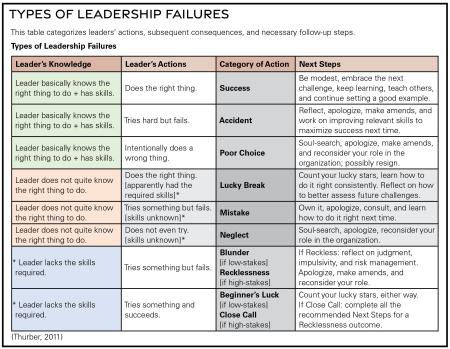We need to fail before we achieve success.
In our personal and professional lives, we generally try to succeed, which is perfectly sensible. To reach our potential, however, we must stop fearing and ignoring failures. The truth is, we all fail, but our narrow focus on achievement, goals, and high-status outcomes often blinds us to the process of learning. And although there are many ways to learn, a deeper understanding of how we learn — specifically of how we recover from mistakes — is the only reliable key to consistent success.
Over three decades of clinical sessions with adolescents and educational workshops with staff around the world, I keep hearing young people talk about how much they fear failure. Given how competitive the world feels, that’s understandable. Yet it’s also paradoxical, given how much we can learn from our mistakes. Anyone in the business of accelerating youth development — especially camp professionals — needs to recognize young people’s aversion to failure and learn how to teach campers and staff how to fail.
False Starts
We are all taught from a young age that failure is bad — or at least undesirable. Failure is something to be avoided. Grades in school, for example, are an index of how much, or how little, we have failed. But grades tell us nothing about the process or quality of a person’s thinking. Traditional classrooms and teams quietly condition us to ignore how we arrived at the wrong answers on tests and quizzes and how our team lost a game or contest.
Even business leaders who attend to the how of their successes will avoid examining failures, believing everything on the path to a costly, undesirable outcome is either useless or disgraceful. Learning from mistakes also takes time, so people take shortcuts in the name of efficiency. Ironically, by neglecting the cognitive, emotional, and social factors that lead to minor failures, we stagnate and set ourselves up for major failures.
Poetic Humanity
Who is more popular than Keats, Eliot, Dickinson, Yeats, Frost, Wordsworth, and even Shakespeare? If you’re ranking the most quoted lines of English poetry, Alexander Pope holds the top spot. “To err is human; to forgive divine” owes its supremacy to pithy accuracy, reassuring morality, and a melodious cadence. Yet both this legendary line and the 5,773-word poem from which it’s drawn fail to capture the importance of failure.
I’m a psychologist, not a poetry scholar, but I may be one of the few people in the last two centuries to have read Pope’s famous work, An Essay on Criticism. It’s written in heroic couplets (remember studying iambic pentameter in high school?), so there’s a lot I failed to understand. But Pope’s thesis is clear: we’re all better people when we embrace our flawed humanity. He thought that critics of art and literature in his time — the early 18th century — were arrogant for making huge deals about small flaws in pieces of art or writing. He urged them to step back and look at a piece of art or writing in its entirety before passing judgment. Basically, Pope’s poem was a criticism of criticism and was, itself, roundly criticized. Very meta, but a solid overall message: We all make mistakes, so don’t be too judgmental.
Beyond Getting Comfortable
Getting comfortable with our own mistakes and tolerating others’ mistakes are essential first steps in being able to grow from failure because they recognize our common humanity. That’s Pope-level thinking — sound but limited. The essential next steps are to reflect on how a particular mistake happened and how to do better next time. That’s next-level thinking.
There are many reasons we make mistakes, including:
Impulsivity
Ignorance
Bias
Confusion
Misunderstanding
Curiosity
Fatigue
Because we are novices at self-examination, it’s easier to investigate what led to a failure when you talk it through with someone you trust — ideally someone who knows you well and who has no trouble being honest with you. I’m reminded of psychologist and economist Daniel Kahneman’s quote about the best adviser being “a person who likes you but doesn’t care about your feelings” (2011). Collaborating with someone who isn’t afraid to ask you tough questions, who isn’t worried you’ll get upset when they point out your biases and blind spots (which, of course, we all have) is incredibly helpful. Everyone needs someone like that.
This reflection step isn’t always complicated and painful, but it can be. If you think about a few consequential mistakes you’ve made, perhaps more than once, you’ve identified a type of failure that, for you, will be more complicated and uncomfortable to learn from. But the alternative to honest introspection is repeated failure, which is decidedly more painful in the long term than gradual improvement.
Sometimes, of course, learning from failure is quick and easy, but the failure itself can be painful. A classic example is when a toddler touches a hot stove. That’s a mistake a child typically makes only once before learning to avoid touching stoves in the future. After a while, curiosity kicks in and that child begins exploring safe ways to use a stove, as well as alternate methods of checking any surface’s temperature without touching it. Psychologists call this durable, instantaneous, cognitive growth single-trial learning.
Once a person reflects and understands the factors that led to a mistake, the next step is to work on improving.
The type of improvement depends on the type of mistake. For example, if ignorance was the primary driver behind an individual’s mistake, that’s an honest mistake. In this case, learning new skills and acquiring new information are cornerstones of improvement. The person probably also owes someone an apology.
On the other hand, if the person knew the right thing to do but did the wrong thing anyway, that failure is a poor choice. In that case, the individual needs to do some soul-searching, learn about and understand the internal and external factors that fueled their decision — like peer pressure or impulsivity — and take a careful look at whether they are in the right role or working for the right organization. Here, too, apologies and making amends are in order.

It Takes Commitment
The process of learning from mistakes, of recovering from failure, takes a commitment to continuous professional development. Think about a football player who’s running down the field and fumbles the ball. They can pretend as if it never happened, they can blame it on someone else, or they can try to recover the ball and run it into the end zone for a touchdown. If that player is committed to doing their best and helping their team, they won’t ignore or accuse; they’ll attempt to retrieve the ball.
Of course, it’s not always possible for players to recover their own fumbles and score touchdowns on the same play, but committed players will try. And regardless of that particular play’s outcome, they’ll reflect on how they dropped the ball in the first place and do everything they can, during practice and in subsequent games, to learn how to keep the ball in their possession.
Failure and learning are intimately linked, but most cultures decouple them. Camps are an ideal countercultural vehicle to mend that rift.
Reference
- Kahneman, D. (2011, October 25). Thinking, fast and slow. New York, NY: Farrar, Straus and Giroux.
- Thurber, C. (2011, March 3) Leadership after failure: Recovery and redemption after making a mess. Camp Business. campbusiness.com/articles/2011/03/01/leadership-after-failure
Christopher Thurber, PhD, is a clinical psychologist and faculty member at Phillips Exeter Academy. He created Prep4Camp.com, the only evidence-based homesickness prevention program, and co-authored the best-selling Summer Camp Handbook with Jon Malinowski, PhD. His newest book, The Unlikely Art of Parental Pressure coaches caregivers on healthy ways to set children on their unique path to success. Learn more about the work that Chris does with schools and camps on DrChrisThurber.com.


